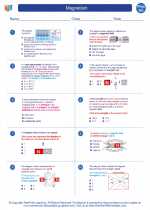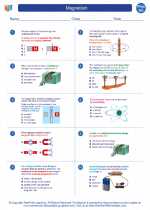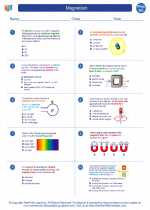Environmental Conditions in Physics
Temperature
Temperature is a measure of the average kinetic energy of the particles in a substance. In physics, it affects the behavior of gases, liquids, and solids. Changes in temperature can lead to thermal expansion or contraction of materials, altering their physical dimensions. Additionally, temperature influences the speed of sound and the electrical resistance of conductors.
Pressure
Pressure is the force exerted per unit area. In physics, it has significant effects on the behavior of gases and fluids. For example, pressure variations can cause changes in the volume and density of gases, leading to phenomena such as Boyle's law and the behavior of atmospheric air. Pressure also plays a role in the study of fluid dynamics and the behavior of solids under compressive forces.
Humidity
Humidity refers to the amount of water vapor present in the air. In physics, humidity affects the rate of evaporation and condensation, as well as the refractive index of air. Understanding humidity is crucial in the study of thermodynamics, meteorology, and the behavior of materials in varying moisture conditions.
Altitude
Altitude refers to the height above sea level. In physics, changes in altitude can affect atmospheric pressure, temperature, and the behavior of gases. Understanding the effects of altitude is important in fields such as aerodynamics, atmospheric physics, and the study of fluid behavior in different environmental conditions.
Irradiance
Irradiance is the power per unit area received from electromagnetic radiation, such as sunlight. In physics, it influences the behavior of materials, including their thermal response and photoelectric effects. Understanding irradiance is crucial in areas such as solar energy, optics, and the study of light-matter interactions.
Magnetic Field
A magnetic field is a region where magnetic materials and moving electric charges experience a force. In physics, magnetic fields play a fundamental role in the behavior of charged particles, electromagnetic induction, and the operation of magnetic materials. Understanding magnetic fields is essential in the study of electromagnetism, magnetism, and applications in technologies such as electric motors and generators.
.


